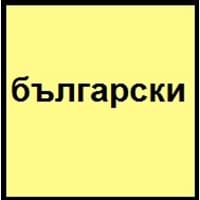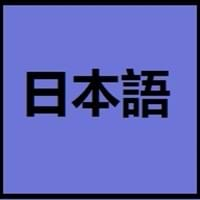Bulgarian vs Japanese
Countries
Bulgaria, European Union
Japan
National Language
Bulgaria
Japan
Second Language
Not spoken in any of the countries
Not spoken in any of the countries
Speaking Continents
Africa, Europe
Asia, Pacific
Minority Language
Hungary, Romania, Serbia, Slovakia, Ukraine
Palau
Regulated By
Institute for the Bulgarian language
Agency for Cultural Affairs (文化庁) at the Ministry of Education
Interesting Facts
- The only Slavic language which has lost all its grammatical cases is Bulgarian.
- The first Slavic language to be written was Bulgarian in 9th century.
- In Japanese Language, there are 4 different ways to address people: kun, chan, san and sama.
- There are many words in Japanese language which end with vowel letter, which determines the structure and rhythm of Japanese.
Similar To
Macedonian language
Korean Language
Derived From
Not Available
Not Available
Alphabets in
Bulgarian-Alphabets.jpg#200
Japanese-Alphabets.jpg#200
Writing Direction
Left-To-Right, Horizontal
Left-To-Right, Horizontal, Top-To-Bottom
Hello
Здравейте (Zdraveĭte)
こんにちは (Kon'nichiwa)
Thank You
Благодаря ти (blagodarya ti)
ありがとう (Arigatō)
How Are You?
Как си? (Kak si?)
お元気ですか (O genki desu ka?)
Good Night
Лека нощ (Leka nošt)
おやすみなさい (Oyasuminasai)
Good Evening
Добър вечер (Dobãr večer)
こんばんは (Konbanwa)
Good Afternoon
Добър ден (Dobãr den)
こんにちは (Konnichiwa!)
Good Morning
Добро утро (Dobro utro)
おはよう (Ohayō)
Please
Моля (Molja)
お願いします (Onegaishimasu)
Sorry
Съжалявам (Sãžaljavam)
ごめんなさい (Gomen'nasai)
Bye
Довиждане (Doviždane)
さようなら (Sayōnara)
I Love You
Обичам те (Običam te)
愛しています (Aishiteimasu)
Excuse Me
Извинете ме (Izvinete me)
すみません (Sumimasen)
Dialect 1
Kotel-Elena-Dryanovo
Sanuki
Where They Speak
Bulgaria
Kagawa
How Many People Speak
Not Available
Dialect 2
Panagyurishte
Hakata
Where They Speak
Bulgaria
Fukuoka
Where They Speak
Bulgaria
kansai
Speaking Population
Not Available
Native Name
български (bãlgarski)
日本語
Alternative Names
Balgarski
Not Available
French Name
bulgare
japonais
German Name
Bulgarisch
Japanisch
Pronunciation
Not Available
/nihoɴɡo/: [nihõŋɡo], [nihõŋŋo]
Ethnicity
Not Available
Japanese (Yamato)
Language Family
Indo-European Family
Japonic Family
Subgroup
Slavic
Not Available
Branch
Southern
Not Available
Early Forms
Old Bulgarian, Middle Bulgarian, Modern Bulgarian
Old Japanese, Early Middle Japanese, Late Middle Japanese and Early Modern Japanese
Standard Forms
Standard Bulgarian
Japanese
Signed Forms
Bulgarian Sign Language
Signed Japanese
Scope
Individual
Individual
ISO 639 6
buls
Not Available
Glottocode
bulg1262
nucl1643
Linguasphere
53-AAA-hb
45-CAA-a
Language Type
Living
Living
Language Linguistic Typology
Subject-Verb-Object
Subject-Object-Verb
Language Morphological Typology
Not Available
Agglutinative, Synthetic
Bulgarian and Japanese Language History
Comparison of Bulgarian vs Japanese language history gives us differences between origin of Bulgarian and Japanese language. History of Bulgarian language states that this language originated in 9th Century whereas history of Japanese language states that this language originated in 1185. Family of the language also forms a part of history of that language. More on language families of these languages can be found out on Bulgarian and Japanese Language History.
Bulgarian and Japanese Greetings
People around the world use different languages to interact with each other. Even if we cannot communicate fluently in any language, it will always be beneficial to know about some of the common greetings or phrases from that language. This is where Bulgarian and Japanese greetings helps you to understand basic phrases in Bulgarian and Japanese language. Bulgarian word for "Hello" is Здравейте (Zdraveĭte) or Japanese word for "Thank You" is ありがとう (Arigatō). Find more of such common Bulgarian Greetings and Japanese Greetings. These greetings will help you to be more confident when conversing with natives that speak these languages.
Bulgarian vs Japanese Difficulty
The Bulgarian vs Japanese difficulty level basically depends on the number of Bulgarian Alphabets and Japanese Alphabets. Also the number of vowels and consonants in the language plays an important role in deciding the difficulty level of that language. The important points to be considered when we compare Bulgarian and Japanese are the origin, speaking countries, language family, different greetings, speaking population of these languages. Want to know in Bulgarian and Japanese, which language is harder to learn? Time required to learn Bulgarian is 44 weeks while to learn Japanese time required is 88 weeks.





